Pickleball has emerged as a phenomenon in the sports world, attracting a diverse crowd of players of all ages. It promotes engagement, connects communities, and provides numerous physical benefits. However, alongside its rising popularity, a troubling reality is that many players fall victim to scams that exploit the game’s growing fervor, leading to significant financial losses.
The forms of scams are often varied and sophisticated, targeting both novice players with little experience and those who have been involved in pickleball for a while.
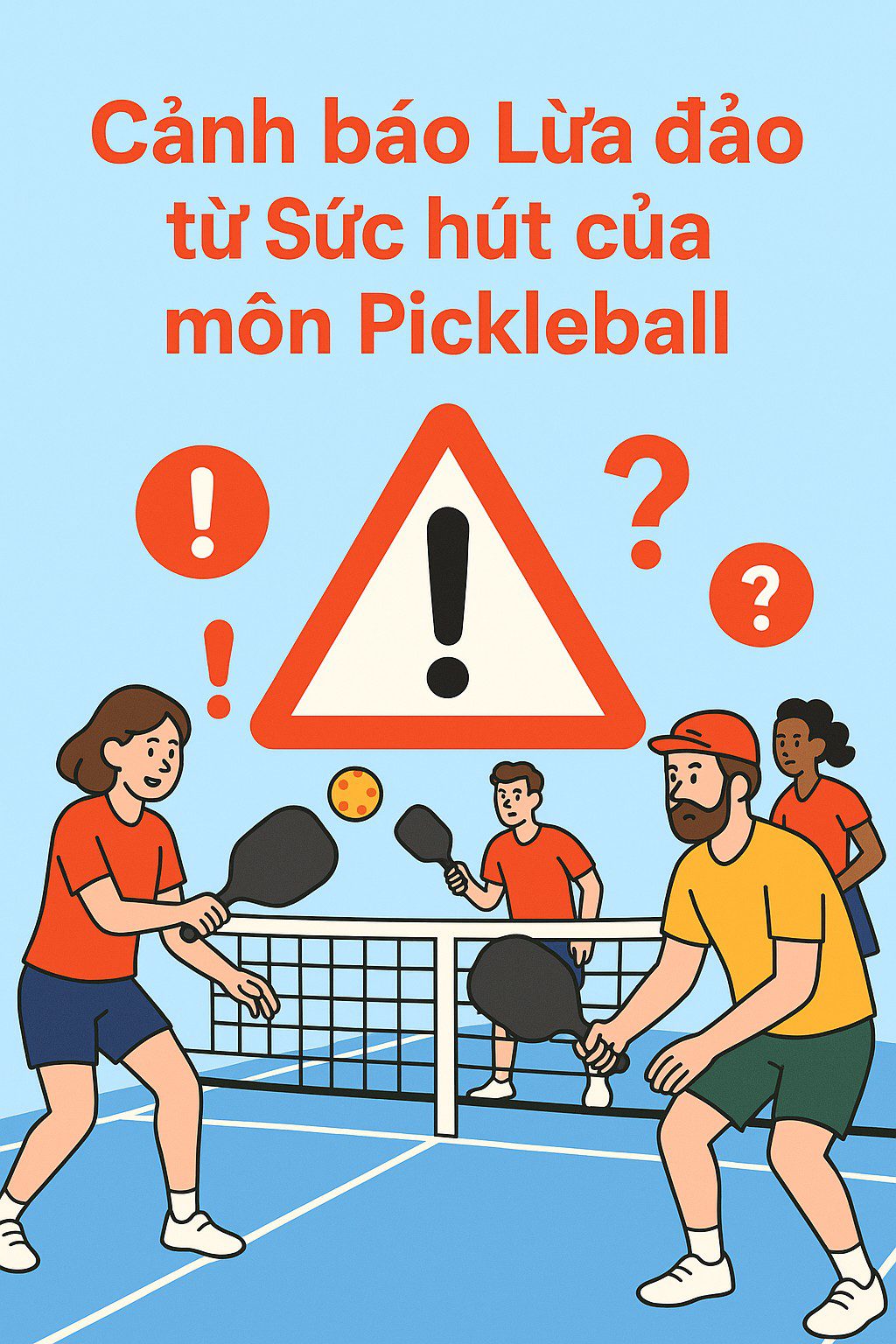
Playing Pickleball: A Girl’s Experience of Losing 200 Million Dong and Lessons from a “Hot Cake” Investment
Recently, a girl named N, living and working in Hanoi, participated in the “Newbie Pickleball” group on social media. Through this group, she met someone who introduced her to a training program at a large technology company in Vietnam.
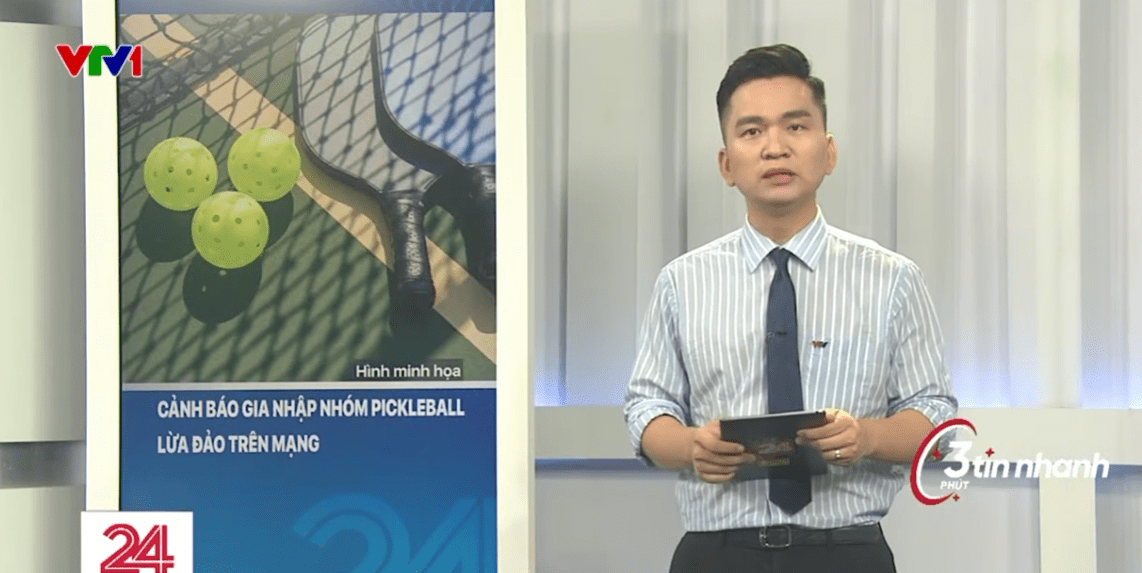
During a conversation, this person indicated that there were high returns on investments made through direct online games, which caught N’s attention. Prior to these enticing offers, the primary lure was a “hot cake” investment opportunity that promised to dominate the market of the initial investors. N believed in the potential and invested up to 2.1 billion Dong. However, when she wanted to withdraw her funds, she received a notification from the system that her account had violated the original principles, requiring her to deposit more money before she could withdraw any.

Realizing she had been scammed, N promptly reported to the authorities. In light of this, the Hanoi Police urged citizens to be cautious when participating in pickleball groups on social media without fully understanding the risks involved. Particularly with the allure of high returns, the methods for withdrawing money can easily be a trap for potential investors. If encountering suspicious signs of fraud, individuals should contact law enforcement immediately to resolve the matter according to regulations.

Registering for Online Pickleball Courses: Beware of Hidden Costs
Before the end of last year, many Facebook accounts appeared advertising “Vietnam Pickleball Federation” that shared content promoting various training centers for this sport, aiming to attract the public to join and dominate the market.
Specifically, when citizens registered for classes, there were requirements to join Telegram groups directed by “experts” leading them to fulfill numerous tasks to verify their eligibility for sports participation and reduce costs. Later, users were required to complete tasks that had substantial financial implications. At this point, citing incorrect execution of tasks, they often demanded users to pay multiple times or transfer additional funds to withdraw the total amount previously transferred. When sums reached hundreds of millions, even billions of Dong, users would be left stunned, disconnecting from the Telegram groups.
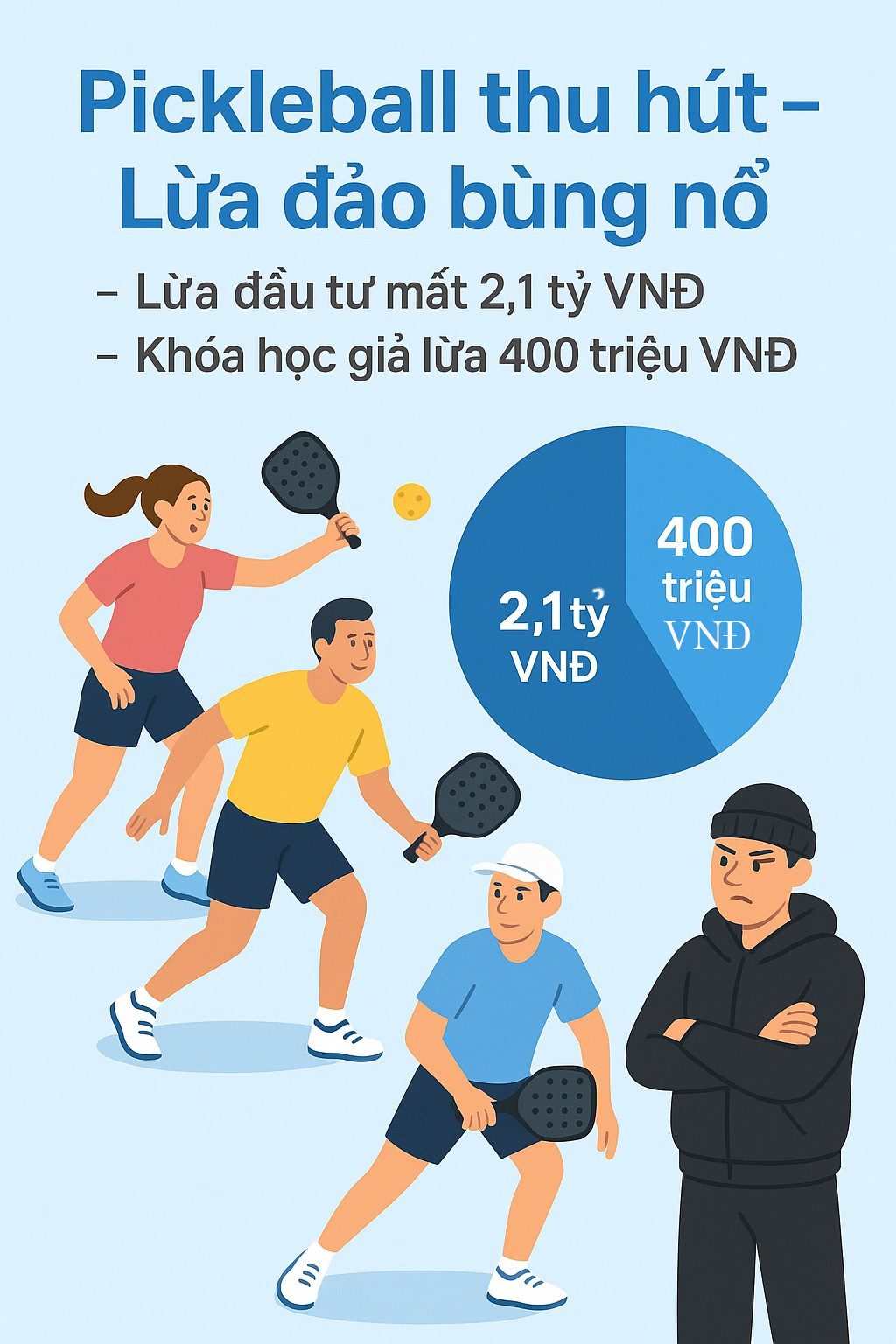
Eventually, a mother was scammed out of 400 million Dong while registering for a pickleball course for her child online. Following this incident, the authorities advised citizens to be cautious when enrolling in classes, especially pickleball courses advertised on social media. If you intend to register, it is advisable to go directly to the centers or training facilities to gain a clear understanding of the situation. When encountering obvious signs of fraud, individuals should contact law enforcement immediately for a timely resolution according to regulations.
Besides direct financial scams, there are many other deceptive practices: selling poor-quality equipment, counterfeit products, and lacking performance guarantees, which can lead to injuries. In many instances, after receiving payments, these scam operators will disappear and cut off contact.
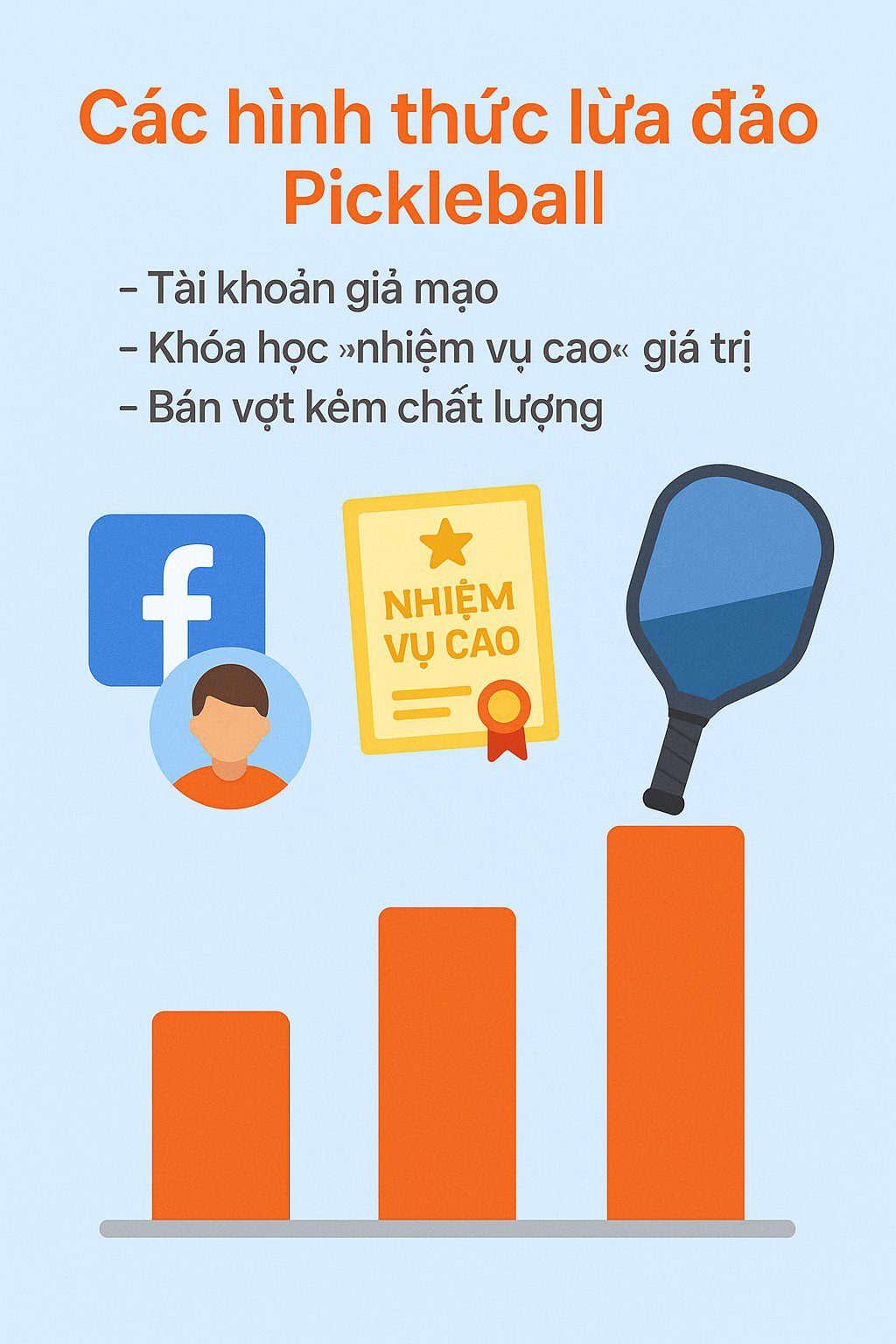
Protect Yourself
To avoid becoming a victim of these deceptive schemes, pickleball players should enhance their vigilance and implement the following measures:
- Check the credentials of sellers or organizations: Before making a purchase, registering for events, or participating in any project, research the reputation of the seller or organizing body. Seek opinions from experienced players and reputable pickleball community groups.
- When participating in tournaments or events, verify the information of the organizing body, including their address, timing, and clarity of details. Directly contact relevant agencies for confirmation.
- Prefer purchasing products at official retail stores or authorized distributors: Instead of being lured by online offers, choose to buy equipment and accessories from reputable establishments with clear business licenses or authorized dealers of major brands.
- Do not trust overly enticing offers promising unusually high returns: Any investment opportunity with excessively high returns is likely a scam. Understand the risks involved, request legal documentation, and consult financial experts before making decisions.
- Report suspicious cases: If you notice any signs of fraud, quickly report to the authorities or share information within pickleball community groups to warn others.
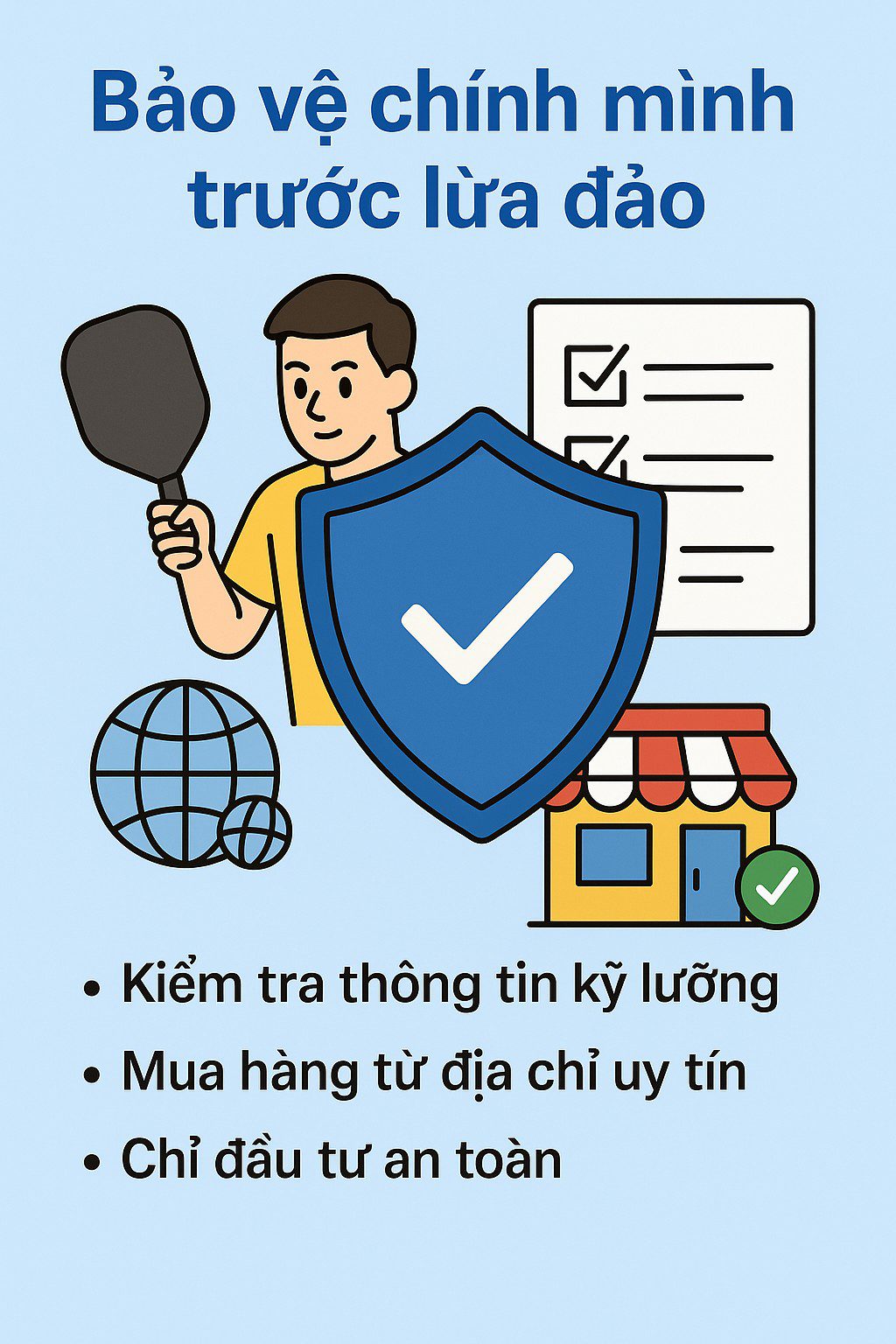
The allure of pickleball is undeniable, but this very appeal also creates opportunities for malicious exploitation. Be a savvy player and stay alert to protect yourself from unwarranted risks, ensuring that your experience with pickleball remains enjoyable and safe.




















